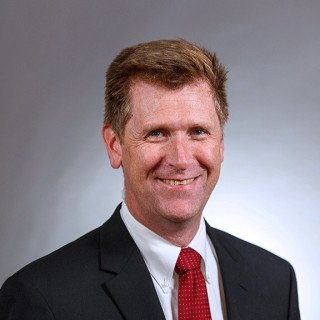
Matthew Morris
I focus my practice exclusively on advising nonprofit organizations.
M.G. Morris Law focuses on one thing: helping nonprofits, their donors, and benefit corporations do more good in the world by preventing and solving their legal problems.
I grew up in the Midwest. After college I flew helicopters in the Navy for ten years before going to law school. I served "one weekend a month" for another twenty years. After law school and an appellate clerkship in Indiana, I joined an Indianapolis law firm helping employers navigate employment issues. During an unexpected one-year detour to Afghanistan, I provided advice to the Afghan government on anti-corruption efforts.
After coming home, I served for 11 years as an Assistant United States Attorney, trying cases before juries and arguing appeals. But my favorite part of being a prosecutor was building relationships with my clients, crime victims' advocates, and organizations that advocate for the powerless. After several years of thinking about ways that the legal industry can serve civil society better, I heard the question, "what would you do if you weren't afraid?"
The answer to that question, for me, was to establish a new kind of law firm. M.G. Morris Law, P.C., is a (mostly) virtual and (mostly) paperless firm. We're not small, we're agile: there is no committee that needs to approve taking on new clients or new matters. And using the newest law firm practice management technology, I can scale my efforts in ways that traditional legal practice might not. Inspired by the example of nonprofit lawyers in other states, I have adopted new billing models that move away from the billable hour model and focus on more predictable and cost-effective billing, including subscription services and flat fees, to remove barriers to both value and communication. The billable hour model rewards inefficiency (by me) and discourages communication (by you).
In our personal philanthropic life, my wife Amy and I are involved in animal rescue, blood cancer research, and disaster response.
- Business Law
- Business Contracts, Business Dissolution, Business Finance, Business Formation, Mergers & Acquisitions, Partnership & Shareholder Disputes
- Nonprofits and exempt organizations
- FaceTime
- Skype
- Zoom
- Microsoft Teams
-
Rates, Retainers and Additional Information
Most services are offered under either a low, predictable monthly subscription for “outside general counsel” services, or flat fees for “outside counsel” services.
- Indiana
- Indiana Supreme Court
- ID Number: 26510-29
-

- 7th Circuit
-

- 9th Circuit
-

- English: Spoken, Written
- Spanish: Written
- Founder and Principal
- M.G. Morris Law
- - Current
- I help nonprofits and their donors avoid, minimize, and respond to legal issues so that they can do more good in the world by focusing on their missions.
- Assistant United States Attorney
- United States Department of Justice
- -
- Advisor
- NATO Training Mission Afghanistan
- -
- Associate
- Baker and Daniels LLP
- -
- Law clerk to the Hon. Michael S. Kanne
- United States Court of Appeals for the Seventh Circuit
- -
- University of Michigan - Ann Arbor
- J.D. (2006)
- -
- Honors: Cum laude
-

- Georgetown University
- B.S.F.S. (1993) | International Politics
- -
-

- A Night to Honor Service
- Federal Bar Association
- Indiana State Bar # 26510-29
- Member
- Current
-

- Treatment by Chiropractors under the Family Medical Leave Act
- Indiana Employment Law Letter
- Politics and Work, Part 1: Private Employers
- Politics and Work, Part 2: Public Employers
- Indiana Employment Law Letter
- E-verify With Caution
- Indiana Employment Law Letter
- Hiding Amongst a Crowd and the Illegality of Deceptive Lighting
- Naval Law Review
- Use of Accomplice Witnesses in Criminal Investigations and Prosecutions, Basic Criminal Trial Advocacy Seminar
- United States Department of Justice National Advocacy Center
- A survey of the particular difficulties of using criminal accomplices in the investigation and trial of criminal cases.
- Effect of Child Pornography Trafficking on Victims, Crimes Against Children, Teens and Women
- California State Bar
- Employment Document Retention Periods, Employment Records, Retention, Retrieval, and Destruction
- Employment Law Institute
- Use of Accomplice Witnesses in Criminal Investigations and Prosecutions, Basic Criminal Trial Advocacy Seminar
- United States Department of Justice National Advocacy Center
- Website
- The Firm's Website
- Q. PA registration for a nonprofit bringing in less than $25k annually in contributions.
- A: There are two things going on here, and because Pennsylvania deals with them a bit differently than California does, it is a change to what you are used to.
All states have some form of keeping track of the corporations and other business entities that are based in their state. That applies to for-profit corporations, nonprofit corporations (which are called not-for-profit corporations in some states), limited liability companies (LLCs), and maybe some others (like partnerships) depending on the state. In Pennsylvania, the office that cares about keeping track of all the corporations is the Department of State, specifically the Bureau of Corporations and Charitable Organizations. It was the ... Read More
- Q. If a CA nonprofit has filed its statement of domestication with PA, dies it need to file new articles of incorporation?
- A: Depending on the specifics of your case, it would probably be advisable to draw up amended articles of incorporation and new bylaws for the Pennsylvania nonprofit. This is because Pennsylvania's laws and California's nonprofit laws are not identical, and it is likely that when your organization was formed in California the person who drafted the articles of incorporation and the bylaws likely did that with an eye toward satisfying California law.
Here is just one example: in California the Chair (or president) cannot be the same person as the Treasurer. Your California bylaws probably have a provision in there ensuring that the same person does not serve as the President and the ... Read More
- Q. Can my nonprofit give to my small business if they are related?
- A: Probably not. I assume from your description of the nonprofit's mission that this is a 501(c)(3) and is incorporated in California as a charitable public benefit organization.
This is an example of what the IRS would call "private inurement." An organization can only be a 501(c)(3) if "no part of the net earnings" of the organization "inures to the benefit of any private shareholder or individual." Private inurement occurs when the assets of a nonprofit are given to a small business owned by somebody who is involved in running the nonprofit. The State of California also takes the position that any assets of a charity are held in trust for the charitable purpose ... Read More